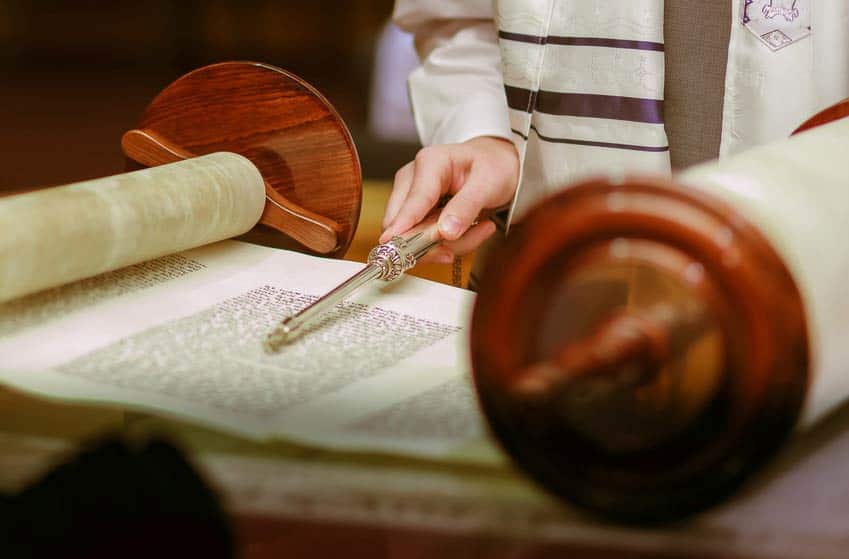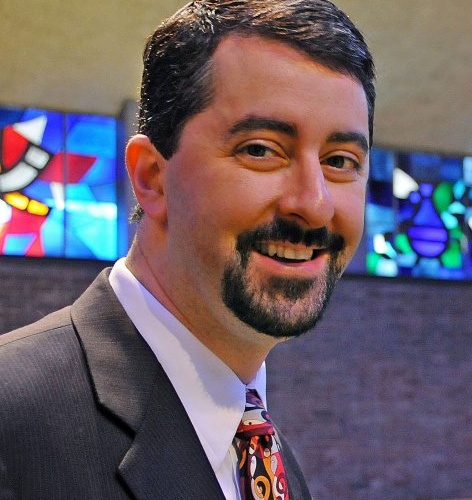Music Career Finder
Survey Start
Cantor

How To Become a Cantor
- A cantor leads a religious congregation in song and prayer
- A cantor is a trained clergy member of a Jewish synagogue
- Cantors are involved in teaching, officiating weddings, doing bar/bat mitzvahs, speaking at funerals, and more
- This career requires a master’s degree in Sacred Music from a seminary
- The average salary of a cantor is $241,295 per year and can range from $15,000 to $387,000
- Career Description
- Salary
- Career Outlook
- Career Path
- Experience & Skills
- Education & Training
- Additional Resources
- Sources
- References
Career Description
A cantor leads a religious or spiritual congregation in singing and/or prayer.
Usually, the profession of cantor refers to someone leading a Jewish congregation, but it can also refer to the lead singer or choir director in a Christian church.
What Does a Cantor Do?
“What a Cantor did and does today are two very different things,” explains Erik Contzius, a Composer, classical baritone, and Cantor in the Reform Judaism tradition.
The Cantor used to simply lead the temple orchestra or choir. Today, it’s a seminary-trained clergy position.
So on top of leading the congregation in song and prayer, the cantor also does weddings, funerals, bar and bat mitzvahs, baby namings, brises, and preaches from the pulpit.
Contzius said a cantor’s “primary training is in modern Jewish liturgical music” but their “primary work experience is in being a clergy person.”
He said this can create “an interesting schizophrenia within the Cantor” because you get into it for the love of music yet end up doing a lot of other, clergy-related tasks.
A Day In the Life of a Cantor
Here are the things a cantor may do on any given day:
- Preparing the music (nowadays it’s less choir music and more praise bands and a cappella)
- Teaching music to children
- Teaching from the pulpit
- Officiating weddings
- Doing bar/bat mitzvahs
- Speaking at funerals
- Going to board meetings
Salary
The average salary for a Cantor is about $241,295, depending on job responsibilities and the size of their synagogue1.
However, a cantor may earn anywhere from $15,000 to $387,000 annually.
“It’s a salaried position with benefits,” Contzius explains, saying you would negotiate your own contract.
“If you’re at a synagogue that’s healthy financially and otherwise, you can be treated well. You’re not working as an ascetic; you’re not giving up all this time and working six-day weeks without compensation.”
Hey, what do you think about trying our new Music Career HelperMusic Career Helper really quick? It’s totally free and could help get your career moving fast! Give it a try. It’s totally free and you have nothing to lose.
Career Outlook
Being a cantor, in other words a clergy member, you will work quite a lot.
“Typically, clergy people have one day off a week and it’s not the weekend,” Contzius said. “So get ready to lose your weekends.”
He works all weekend, including Friday nights and Sundays, and his day off is Monday. And his typical work hours are from 9 a.m. to 9 or 10 p.m.
Career Path
To become a cantor, you will need to graduate from seminary training in order to earn your master’s degree.
But Contzius recommends teaching sacred music and getting to know your local Cantors before you graduate.
“In my senior year of college, I had two different religious school music teaching jobs,” he said. “Also, as a senior, I must have interviewed at least twenty local Cantors. (I was lucky because I was living in New Jersey.) I cold-called a lot of different synagogues asking to speak with the Cantors and learn more about the profession.”
After graduation, you can start working with smaller congregations, either as an assistant to the cantor (usually in bigger cities) or the cantor yourself. The size of the congregation will directly affect the salary they can offer you.
Experience & Skills
First and foremost, you should belong to the religion to which you are acting as a cantor. Usually, this is Judaism, but can also be in the Christian religion.
On top of that, here are the experience and skills you’ll need to succeed, according to Contzius:
- Singing (this is the most important skill)
- Play guitar (preferred) or piano
- Teaching music to children
- Learn Hebrew
- Visit the synagogue regularly
- Know how to chant Torah
- Be familiar with the books of the Bible
- Be someone who inspires others
- People person
- Patience and empathy
- Good organizational skills
Education & Training
The only way to get hired as a cantor, at least at a Jewish synagogue, is to first go to seminary and earn a master’s degree.
Cantor Degree
You will need to earn a master’s degree in Sacred Music from a seminary that teaches the religion in which you will be working, most likely Judaism. Contzius suggests you also get a degree in Jewish Studies.
This means you’ll need at least two years of collegiate experience before this.
And the master’s degree required won’t be a simple 2-year program like many other master’s programs.
For example, Contzius said there are two major seminaries: Hebrew Union College in Manhattan and Jerusalem and the Jewish Theological Seminary.
The first is a 5-year master’s degree and requires you study at least one year in Jerusalem and one in New York.
The second is a 4- to 5-year program.
And he said most places hire cantors from these two seminaries.
But these seminaries take 5-10 students a year, so they’re competitive to get into.
Additional Resources
“The nice thing about graduating from one of the two major seminaries is it gains you access to the two major unions, the American Conference of Cantors (Reform) and the Cantors Assembly (Conservative),” Contzius says.
“Each of those unions has placement directors and synagogues who are looking for professional, ordained Cantors. Newly graduated Cantors can apply for synagogues below (I believe) 1,000 family units. More experienced Cantors can apply for any synagogue. I think there are similar rules with Cantors Assembly.”
Sources

Erik Contzius
Cantor Erik Contzius is a versatile baritone, a creative composer, and a dynamic performer.
His Jewish repertoire is eclectic, ranging from the highly classical (performing the Ernest Bloch “Sacred Service” in Bulgaria, Canada, and Israel) to traditional hazzanut (appearing on the stage of the Stardust Ballroom at Kutsher’s Hotel in the Catskills), to dynamic vocal jazz (touring with the Afro-Semitic Experience!). Cantor Contzius’ compositions have been performed by cantors and choirs across the United States and can be heard on his album, “Teach My Lips a Blessing.”
His compositions are published by the leading publisher of Jewish music, Transcontinental Music Publications.
The New York Times praised his “potent narrative,” while he has garnered high praise from JazzTimes, The Arty Semite, Catholic New York, The Jewish Press of Omaha, Westchester Magazine and Metroland. His setting of Psalm 116 in Hebrew & Latin, in fact, premiered at the Vatican. Contzius’ musical template is an idyllic reflection of his relationship with the Divine.
References
- 1Multiple. "Cantor Salary". ZipRecruiter. published: Oct 22, 2024. retrieved on: Oct 29, 2024


